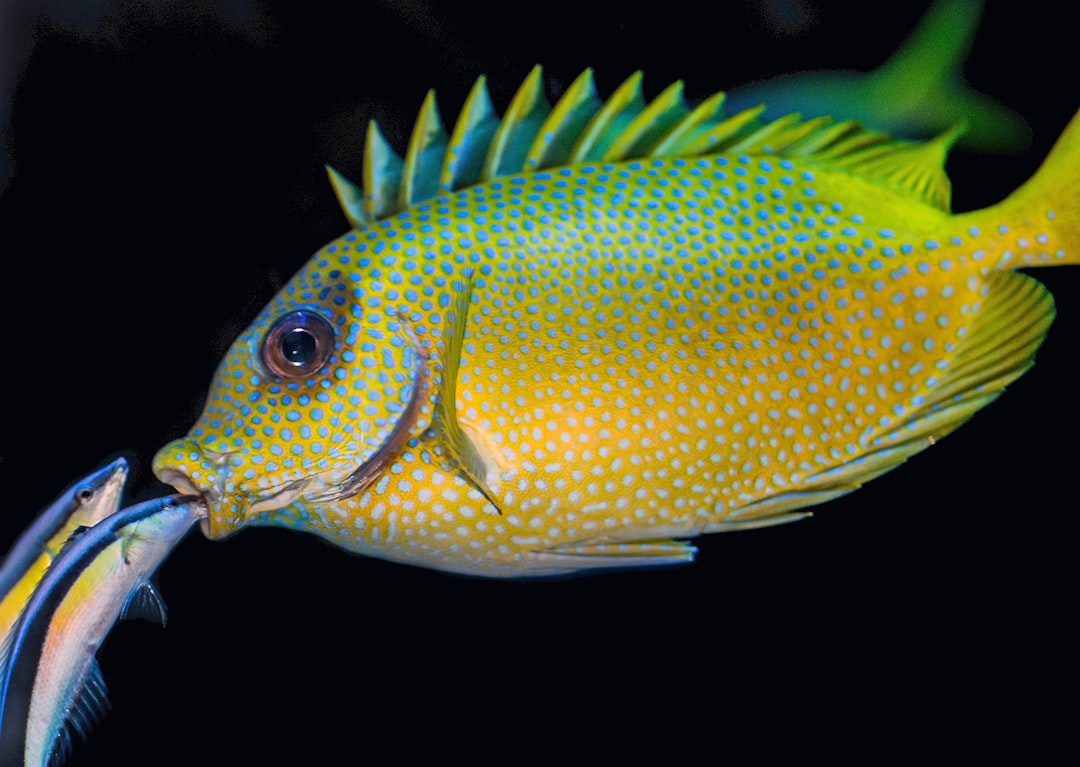Did you know that fish oil supplements can provide numerous benefits for your furry feline friend? From improving joint and heart health to enhancing their coat and skin, fish oil supplements are an effective way to boost your cat’s nutrition. In this article, we will explore the science behind the benefits of fish oil for cats, the various types of fish oil supplements, and dosage recommendations to ensure your pet’s optimal health. Keep reading to learn more.

Understanding the Benefits of Fish Oil Supplements for Cats
Fish oil supplements are a popular addition to cat diets for pet owners looking to improve their cat’s overall health. But what exactly are the benefits of fish oil supplements for cats? Let’s dive in!
Boosting Cat Immune System: When your cat’s immune system is strong, it can fight off harmful bacteria, viruses, and other pathogens that could cause health issues. Omega-3 fatty acids, which are abundant in fish oil supplements, have been shown to have anti-inflammatory and antioxidant properties, which can enhance your cat’s immune response.
Supporting Cat Heart Health: Just like humans, cats can also suffer from heart-related issues. Studies have shown that omega-3 fatty acids found in fish oil can help reduce the risk of heart disease by reducing inflammation and improving circulation. Moreover, fish oil has been shown to help regulate blood pressure and heart rate in cats.
Improving Cat Coat Health: A healthy, glossy coat is often seen as a sign of a happy cat. Fish oil supplements contain omega-3 fatty acids, which can help to keep your cat’s skin and coat healthy. They can help to reduce shedding, prevent dry skin, and even minimize the risk of skin allergies.
Supporting Cat Brain Function: Fish oil supplements are rich in DHA, an omega-3 fatty acid that is vital for brain function. In fact, up to 40% of the brain’s fatty acids are DHA. Studies have shown that supplementing with fish oil can help improve cognitive function in cats and even prevent cognitive decline in senior cats.
Enhancing Cat Eye and Joint Health: Omega-3 fatty acids are also essential for maintaining healthy eyes and joints. By including fish oil supplements in your cat’s diet, you can help prevent eye diseases such as cataracts and promote healthy joint function.
By incorporating fish oil supplements into your cat’s diet, you can help enhance their overall health and wellbeing. However, it’s important to ensure that you choose the right fish oil supplement and dosage to avoid any potential side effects. In the next section, we’ll explore how to choose the best fish oil supplement for your cat.
Choosing the Right Fish Oil Supplements for Your Cat
When it comes to boosting your cat’s health and wellness with fish oil supplements, selecting the right product can be overwhelming. With so many options on the market, it’s essential to consider various factors before making a purchase.
Firstly, it’s crucial to choose a high-quality fish oil supplement specifically designed for cats. Some fish oil brands may be marketed for humans or dogs, but these products may not be suitable for your feline friend. Check the label to make sure the product is formulated for cats.
Next, consider the source of the fish oil. Look for products that are made from wild-caught fish, such as salmon or sardines, to ensure that the fish oil is rich in omega-3 fatty acids and free from contaminants. Additionally, some brands source their fish oil from sustainable fisheries, which is a great option if you’re committed to eco-friendly products.
Liquid fish oil supplements are a popular choice for cats, as they can be easily mixed in with your cat’s food or administered directly. However, some cats may not like the taste or smell of liquid fish oil, so you may need to experiment with different delivery methods to find what works best for your furry friend.
Capsule supplements are also an option if you prefer a more straightforward delivery method. Be sure to choose a product with an appropriate capsule size for your cat’s weight and size.
When selecting a fish oil supplement, it’s also crucial to pay attention to the omega-3 to omega-6 fatty acid ratio. Cats require a diet that includes more omega-3s than omega-6s, and a high-quality fish oil supplement can help to balance your cat’s fatty acid intake for optimal health.
Ultimately, choosing the right fish oil supplement for your cat will depend on their specific health needs and preferences. Consulting with your veterinarian can also provide valuable guidance on which products may be best suited for your beloved pet.
The Correct Dosage of Fish Oil for Your Cat
When it comes to giving your cat fish oil supplements, it’s essential to give them the correct dosage. While fish oil is a beneficial supplement for cats, it’s crucial to follow the recommended guidelines to avoid any adverse effects.
Here’s how to determine the right dosage of fish oil for your cat:
- Consult with Your Veterinarian
Before giving your cat any supplements, it’s crucial to consult with your veterinarian. A vet can help you determine the correct dosage for your cat based on their health history, size, and specific dietary needs. They can also advise you on the best type of fish oil supplement to give your cat based on their needs.
- Calculate Your Cat’s Daily Needs
Once your vet has given you their recommendations, you will need to calculate how much fish oil your cat needs each day. Generally, the recommended dosage for cats is based on their weight. A good rule of thumb is to give your cat 20-50 mg of EPA/DHA per pound of body weight per day.
For example, a cat that weighs 10 pounds should get between 200-500 mg of EPA/DHA per day.
- Consider the Type of Fish Oil Supplement
When choosing a fish oil supplement for your cat, you’ll need to consider the type of supplement you will be using. Liquid fish oil is the most common form of fish oil given to cats, but capsules are also available.
If you are giving your cat liquid fish oil, you will need to measure the correct dosage using a dropper or syringe. If you are using capsules, you can choose to give them whole or pierce them and release the oil onto your cat’s food.
Remember to choose a high-quality fish oil supplement that is sourced from wild-caught fish.
- Monitor for Any Adverse Effects
While fish oil is generally safe for cats, there is always a risk of adverse effects. Some cats may experience digestive upset or an allergic reaction to fish oil.
Be sure to monitor your cat for any signs of adverse effects and contact your vet if you notice any concerning symptoms.
In summary, giving your cat fish oil supplements can be a great way to boost their overall health. However, it’s crucial to follow the recommended guidelines for dosage and choose a high-quality supplement that is safe for your cat’s specific dietary needs.
The Science Behind Fish Oil for Cats: Omega-3 and Omega-6 Fatty Acids
Fish oil is a natural supplement that can be beneficial to cats in a variety of ways. One of the main reasons that fish oil is so beneficial is because it contains omega-3 and omega-6 fatty acids that are essential for your cat’s health.
Omega-3 Fatty Acids
Omega-3 fatty acids are essential fatty acids that cannot be produced by the body and must be obtained through diet. They are known to have a range of health benefits, including reducing inflammation and supporting brain function. In cats, omega-3 fatty acids have been shown to improve coat health, skin health, and kidney function. Additionally, omega-3s may improve bone health, prevent heart disease, and reduce the risk of certain types of cancer.
Omega-6 Fatty Acids
Like omega-3s, omega-6 fatty acids are essential fatty acids that cats must obtain through diet. However, it’s important to note that in excess, omega-6s can actually increase inflammation. This is why it’s important to maintain a proper balance of omega-6 to omega-3 fatty acids in your cat’s diet. The ideal ratio of omega-6 to omega-3 fatty acids for cats is between 5:1 and 10:1.
The Benefits of a Balanced Omega-6 to Omega-3 Fatty Acid Ratio
A balanced ratio of omega-6 to omega-3 fatty acids is essential for good health in cats. A diet that is too high in omega-6s and too low in omega-3s can lead to inflammation, which can contribute to an array of health problems including joint pain and skin irritation. On the other hand, a diet that is high in omega-3s and low in omega-6s can help to reduce inflammation and improve overall health.
In summary, omega-3 and omega-6 fatty acids are essential for your cat’s health. A balanced ratio of these fatty acids can help to reduce inflammation, improve joint and heart health, and support brain function. When choosing a fish oil supplement for your cat, be sure to look for one that contains wild-caught fish oil, has the correct dosage, and is sustainable. Consult with your veterinarian to determine the best fish oil supplement for your cat’s needs.
Managing Cat Allergies and Inflammation with Fish Oil
Managing cat allergies and inflammation with fish oil can have a significant positive impact on your cat’s health. Fish oil supplements can work as natural anti-inflammatories for cats, helping to alleviate symptoms such as itching and redness caused by allergies.
Omega-3 fatty acids, which are present in fish oil, can help regulate the immune system, leading to a decrease in inflammation that can occur as a result of allergies or other environmental factors. This can also be beneficial for cats with arthritis or joint pain.
Choosing the right type of fish oil supplement is crucial when it comes to managing allergies and inflammation. It is important to opt for fish oil supplements that are specifically formulated for cats and made from high-quality, wild-caught fish. Liquid fish oil supplements can be a more suitable option for picky eaters or cats with digestive sensitivity. Alternatively, fish oil capsules can be easily added to food or treats to ensure that your cat is getting their recommended dose of fatty acids.
The dosage of fish oil supplements for cats can also vary depending on several factors such as weight and overall health status. It is best to consult with your veterinarian to determine the appropriate dosage and frequency of administration.
In addition to managing allergy symptoms, fish oil supplements can have various other health benefits for cats. Omega-3 fatty acids have been shown to support heart health and brain function in cats, as well as promote healthy skin and coat. By adding fish oil supplements to your cat’s diet, you can help improve their overall wellbeing and promote natural healing within their body.
List of SEO keywords used in this section:
- cat health
- omega-3 benefits
- fish oil dosage for cats
- cat immune system
- anti-inflammatory for cats
- cat allergies
- cat arthritis
- cat brain function
- cat coat health
- cat skin health
- pet nutrition
- feline digestion
- natural cat supplements
Improving Your Cat’s Joint and Heart Health with Fish Oil Supplements
Fish oil supplements are a great way to improve your cat’s overall health. Specifically, they can boost joint and heart health, two areas of the body that are particularly important for cats. Here’s what you need to know about using fish oil to improve these areas of your cat’s health.
Fatty Acids and Joint Health
One of the key ways that fish oil can help your cat’s joints is by providing a healthy balance of fatty acids. Omega-3 fatty acids, which are found in fish oil, are well-known for their anti-inflammatory properties. This can be beneficial for cats with joint issues like arthritis, as inflammation can contribute to pain and stiffness. By reducing inflammation, omega-3s can help to ease your cat’s discomfort and increase their mobility.
Of course, it’s important to note that omega-3s aren’t the only important fatty acids when it comes to joint health. Omega-6s also play a role, but in order to be effective, they need to be in balance with omega-3s. Most cats’ diets are too high in omega-6s (which are found in many common protein sources like chicken, pork, and beef), which can actually exacerbate joint issues. By giving your cat a fish oil supplement, you can tip the balance in favor of omega-3s, which can improve joint health and reduce inflammation.
Heart Health and Fish Oil
Fish oil can also be beneficial for your cat’s heart. Specifically, research has shown that omega-3 fatty acids (EPA and DHA) can help to support heart health in several ways. For example, they can reduce inflammation, improve blood lipid levels (cholesterol and triglycerides), and reduce the risk of abnormal heart rhythms. This is especially important for older cats or cats with heart issues.
In addition, fish oil can support a strong immune system, which is important for overall health. By reducing inflammation and supporting the immune system, fish oil can help to keep your cat’s heart healthy and strong for years to come.
Choosing the Right Fish Oil Supplements for Your Cat
When it comes to choosing a fish oil supplement for your cat, it’s important to select a high-quality product. Look for wild-caught fish oil (like salmon oil) rather than farmed fish oil, which can contain toxins and contaminants. In addition, make sure the supplement contains both EPA and DHA omega-3 fatty acids, as both are important for joint and heart health. Finally, consider the form of the supplement- liquid fish oil is often easier to administer to cats than capsules.
Dosage and Monitoring
As with any supplement, it’s important to give your cat the correct dosage of fish oil. Generally, cats can safely consume about 150-300mg of fish oil per day, depending on their weight. However, it’s important to consult with your veterinarian before starting your cat on a fish oil supplement, as too much can cause side effects like diarrhea or vomiting.
Finally, it’s important to monitor your cat’s health and behavior after starting a fish oil supplement. Pay close attention to any changes in mobility, energy levels, or appetite. In some cases, fish oil can cause an upset stomach or other mild side effects. If you notice any significant changes, consult with your veterinarian.
By using high-quality fish oil supplements in the correct dosage, you can help to improve your cat’s joint and heart health. This can lead to a more comfortable, healthy, and happy cat for years to come.

















